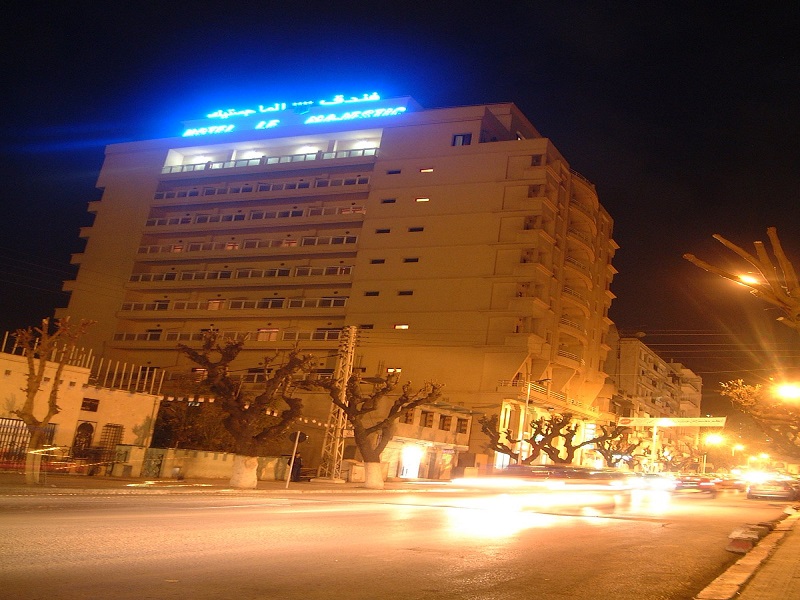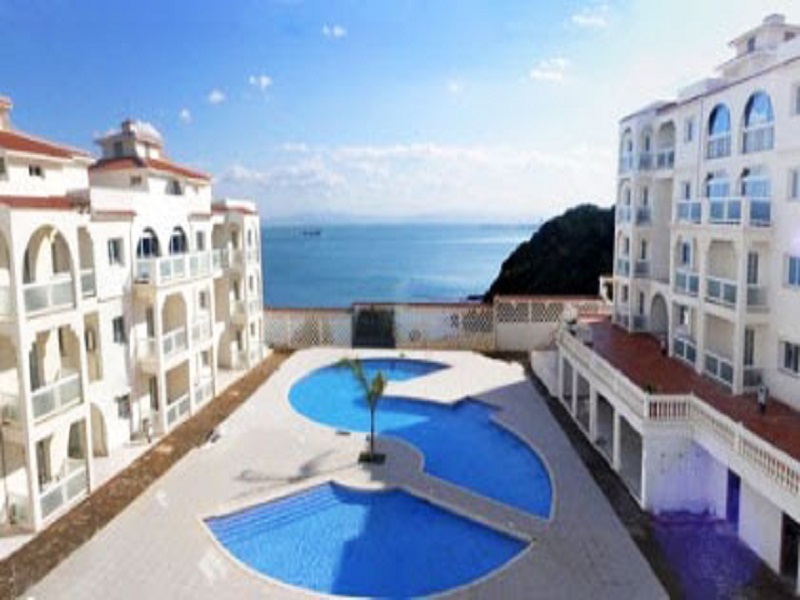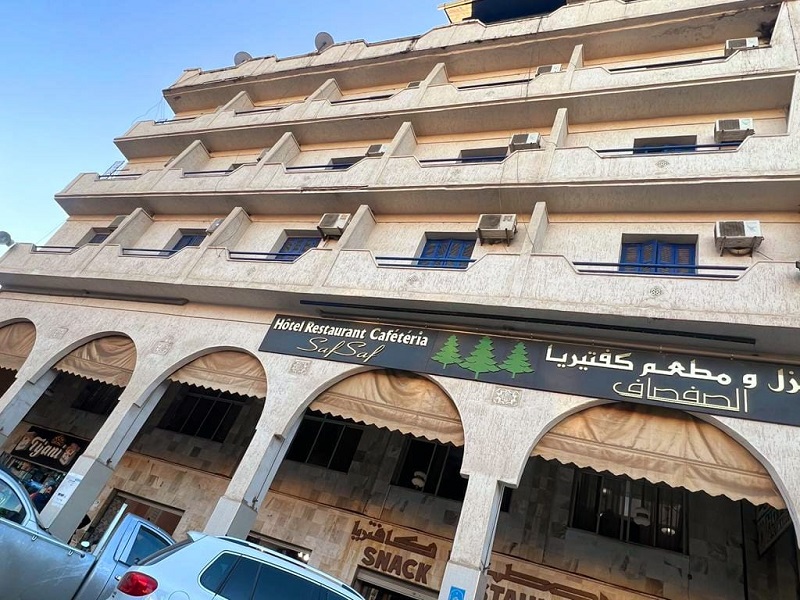About the Seminar
This seminar will provide a great opportunity for participants to discuss the major challenges of unique health, share research data and scientific advances, and strengthen the interface between science and public health strategies.
Where
Sabri Hotel, Annaba. Algeria
When
Wednesday to Thursday
27-28 November 2024
Our Speakers
Here are some of our speakers

Pr BOUSLAMA Zihad
Director of CRE and President of the Seminar

Pr HAFEDTH Abdelmalek
Professor at the University of Carthage (Tunisia)

Dr. Sabeur ARIDHI
Associate Professor at TELECOM Nancy (University of Lorraine)(France).

Pr Alexandru-Ionuț PETRIȘOR [online]
Professor and Director, Doctoral School of Urban Planning, "Ion Mincu" University of Architecture and Urbanism, Bucharest,Romania

Dr. Adam M. SELAMNIA
Ph.D. in Physiology of Human Nutrition [Univ. Paris], Co-funder - Strategic & Business Development Director of NIUM SA (Luxembourg)

Pr. Peter MIKULICEK
Univerzita Komenského v Bratislave (Slovakia)

Pr. Pavel SIROKY
University of Veterinary Sciences Brno (Czech Republic)

Dr. Alessandra TERENZI[online]
University of Pisa (Italia)
Topics
-
Monitoring, management, and prevention of zoonoses
- Emerging infections: discovery and diagnosis.
- Risk factors, transmission dynamics, and mitigation strategies.
- Integration of environmental and health data to assess risks.
-
Antibiotic resistance and One Health »
- Strategies for prevention and control of antibiotic resistance.
- Alternative approaches to combating antibiotic resistance.
- Antibiotic resistance in the veterinary field.
-
Biodiversity, environment, and health
- Biodiversity, biological barriers and wildlife management.
-Vector-borne diseases, vectors and biological control.
- Food security and “One Health”.
-
Climate change and “One Health”
- Impact of anthropization and climate change on health.
- Innovative monitoring and prevention approaches.
- Modeling, Artificial Intelligence and “One Health”.
Commitees
President and Vice_President

Scientific Commitee

Organization Commitee

Author Instructions
Submission Deadline: 12 October 2024 Acceptance Notification: 2nd November 2024
The submitted works (in English, French,or in Arabic) must be original and relevant to the themes of the seminar.
Abstracts should be presented as follows:
Title (14, Times New Roman, Bold, centered)
First Name Last Name¹, First Name Last Name², … (12, Times New Roman, centered)
¹Affiliation (12, Times New Roman)
Abstract: (12, Times New Roman, justified), maximum 250 words.
Keywords: Maximum 5 words
PUBLICATION
Full papers from communications that fall within the topics of the relevant journals may be submitted for possible review and potential publication in one of the following journals:
Journal 1: UAC (Rank B "DGRSDT", SCOPUS, ERIH +...) https://uac.incd.ro/EN/index.htm
1. Strict adherence to the Author Guidelines: authors are held entirely responsible for observing the Author Guidelines in the least detail. That is, any violation of the Author Guidelines results into a desk rejection of submissions (this is why the rejection rate of the journal exceeds 90%). No matter how small the authors consider an error concerning a simple comma, placed where the Guidelines forbid it, e.g., between the last name and initials of authors, or missing or being replaced by another punctuation sign, e.g., after the article title, it will result into a desk rejection. The rules include using the template at https://uac.incd.ro/Index/Model.doc without altering it; the template contains the Author Guidelines. The Author Guidelines are found in more or less detail at https://uac.incd.ro/EN/Index/instr.htm (general presentation), https://uac.incd.ro/Index/UAC_EN.pdf (most common mistakes), and https://uac.incd.ro/Index/Editing_EN.doc (detailed Guidelines), and any violation (including the violation of any of the 50 detailed guidelines only once) results into a desk rejection.
2. Due to the fact that our journal is indexed in important international databases, including Scopus, we explicitly require authors "articles that are well-grounded in the existing literature, showing an up-to-date knowledge of worldwide developments. The reference list must be primarily based on published materials (with ISBN or ISSN) and focused on the mainstream international literature. We recommend authors to limit to a necessary core the list of unpublished materials, especially of those that are not undergoing peer review (Internet websites, unpublished brochures etc.)" Moreover, we do not accept any auto-citation of our journal; a single reference pointing to our journal results into an immediate desk rejection. In more details, the reference list should have at least 25 titles, out of which at least 23 should be published materials (journal articles, books, book chapters, published conference proceedings) written in English, and 20 should be articles published in the mainstream journals. This is an elimination criterion for publication, meaning that if the criterion is not met, the submission is desk rejected. If the reference list is longer, the share of published materials should be similar - at last 90% published materials and 80% articles from the mainstream journals, published in English.
3. Scope of the journal: the journal publishes only papers related to the different fields of urban and territorial planning, architecture, and civil engineering. Papers from other fields must show a clear connection to urban/territorial planning, architecture, and civil engineering, in order to be accepted in the peer review process.
4. If the reviewers ask for changes, the authors must provide along with their revised manuscript an anonymous letter describing how they addressed each comment received. Failure to provide the letter, providing the letter in a different file format, or disclosing the identity of authors may result into a rejection.
5. The journal enforces the use of specific file formats in the electronic communication. The use of other formats may result into a rejection during the peer review process or immediate desk rejection in the first place.
6. Only the manuscript must be submitted in the first place. Submitting the pledge form before the manuscript is accepted, or submitting other documents not needed, such as a cover letter, will delay processing the submission and may result into a desk rejection.
Journal 2: RSDU (indexed in Ulrich's Periodicals Directory / Index Copernicus/ Portalul ISSN / CEEOL) http://www.rsdu.ro/Index/art.htm
1. Strict adherence to the Author Guidelines: authors are held entirely responsible for observing the Author Guidelines in the least detail. That is, any violation of the Author Guidelines results into a desk rejection of submissions. No matter how small the authors consider an error concerning a simple comma, placed where the Guidelines forbid it, e.g., between the last name and initials of authors, or missing or being replaced by another punctuation sign, e.g., after the article title, it will result into a desk rejection. The references and in-text citations must use the Harvard reference style. Files must be submitted by e-mail to the contact address indicated on the website as attachments in Microsoft Office 2003 or earlier format (DOC). DOCX and PDF files are not accepted, and determine the desk rejection of submissions.
2. Scope of the journal: the journal publishes only papers related to the different fields of urban and territorial planning. Papers from other fields must show a clear connection to urban/territorial planning in order to be accepted in the peer review process.
Venue
Event venue location info
International Seminar on One Health
“One Health’ is an approach to designing and implementing programmes, policies, legislation and research in which multiple sectors communicate and work together to achieve better public health outcomes” WHO, 2017
Hotels
Here are some nearby hotels
Gallery
Check our gallery
Our Website
Don't miss the news by visiting our website

Fees
Payment will be made on site on the day of the seminar
Researchers/University and Hospitalo-University Lecturers
10000 DA
- Coffee Break
- Lunch
- Documentation
- Accommodation
PhD Students
5000 DA
- Coffee Break
- Lunch
- Documentation
- Accommodation
Non-Presenter
5000 DA
- Coffee Break
- Lunch
- Documentation
- Accommodation
Member of the CRE
5000 DA
- Coffee Break
- Lunch
- Documentation
- Accommodation
Professionals/Industrialists
15000 DA
- Coffee Break
- Lunch
- Documentation
- Accommodation




















